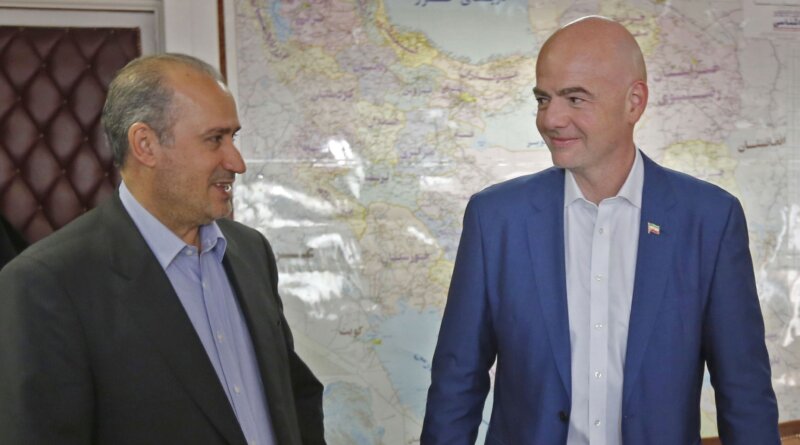US Denies Iran Visas for 2026 World Cup Draw in Washington
Iran World Cup visa denial has emerged as a major diplomatic issue ahead of the highly anticipated 2026 FIFA World Cup draw, scheduled for December in Washington, D.C. Reports from the Tehran Times indicate that the U.S. State Department has declined to issue visas to several key members of the Iranian football delegation. This includes Iran Football Federation President Mehdi Taj, head coach Amir Ghalenoei, and seven other important officials.
Background: Visa Roadblocks for Iran’s Football Delegation
The Iran World Cup visa denial reportedly came as a surprise when the Iranian Football Federation received notification that their delegation’s applications would not be approved. The refusal affects not only the president and coach, but other federation staff involved in the tournament’s preparations as well. Although the U.S. government did not officially comment on the reasons behind the denial, such actions are often linked to ongoing diplomatic tensions between the two countries.
Impact on Iran’s 2026 World Cup Preparations
The denial of U.S. visas to the Iranian delegation could potentially hinder Iran’s ability to participate fully in the 2026 FIFA World Cup draw. The draw, a critical event which determines group stage pairings, requires national federation representatives to be present for procedural meetings and to advocate for their teams’ interests. Without key officials, Iran might face logistical and organizational challenges—raising concerns about fairness and equal participation in the tournament process.
Perspectives from Both Sides
While the Iranian Football Federation has expressed disappointment over the visa denials, U.S. officials remain silent on the specific rationale behind the decision. Observers note that such visa issues are not unprecedented when it comes to U.S.-Iran relations, especially at high-profile international events. The lack of clarity keeps the footballing community guessing about potential next steps and whether diplomatic efforts might be made to resolve the standoff before the draw takes place.
Potential Consequences for International Football
Diplomatic disputes like the Iran World Cup visa denial not only disrupt sporting events, but also set a concerning precedent for future international tournaments hosted by the United States. The FIFA World Cup is founded on principles of inclusivity and global participation. Excluding representatives from any nation—regardless of political tensions—undermines these values and risks politicizing the sport in the eyes of fans and participants worldwide.
Reactions from the Football Community
The global football community has voiced concerns about the impact of the visa denials. Fans and officials alike worry that such actions could negatively affect team morale and preparation. Moreover, there is apprehension that this incident might trigger similar diplomatic roadblocks for other teams, potentially casting a shadow over the 2026 World Cup itself. FIFA, the governing body of world football, is expected to monitor the situation closely and may seek clarification or intervention to ensure all qualified teams are represented fairly at the draw.
Looking Ahead: Will the Issue Be Resolved?
As the 2026 FIFA World Cup draw approaches, all eyes are on whether the Iran World Cup visa denial will remain in place or if discussions between U.S. and Iranian officials might yield a late resolution. The situation represents a significant test for football diplomacy and the ability of sports to transcend political differences on the global stage.
For more updates on this developing story and comprehensive coverage of football news around the world, visit our homepage for more news.
Opinion: Sports Should Bridge Divides, Not Deepen Them
While national security is a legitimate concern for any country, the spirit of the FIFA World Cup is grounded in unity, mutual respect, and fair play. Denying visas to Iran’s football leadership not only disrupts the practical aspects of tournament preparation but also sends a message that political issues can overshadow the inclusive nature of international sport. It is crucial for all stakeholders to prioritize the ideals of the game and work toward amicable solutions where diplomacy and sportsmanship prevail.
Your global gateway to nonstop football coverage:
News Goal
Share this content:

